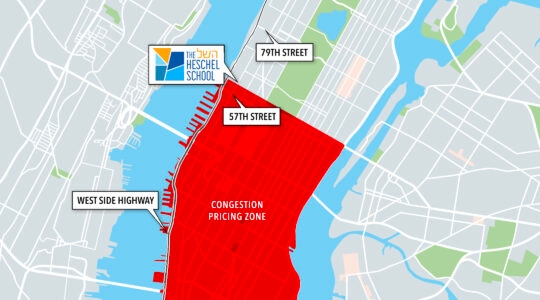New York’s insular Syrian Jewish community, which was subject to wide criticism when its most prominent rabbinical leader — and de facto leader of Syrian Jewry in the United States — was arrested two years ago, came under scrutiny again this week when Rabbi Saul Kassin pled guilty to money-laundering charges.
On Monday Rabbi Kassin admitted his role, in Trenton federal court, in a scheme that laundered tens of thousands of dollars via religious charities.
The rabbi pled guilty to using his charity, the Magen Israel Society, to transmit between $200,000 and $400,000 from June 2007 to 2008 — minus a 10-percent commission — through the society. He agreed to forfeit $367,500, a portion of the funds seized from the charity’s bank account and his Brooklyn home.
The transactions had been arranged by Solomon Dwek, a disgraced developer-turned-government informant.
The Israel-born Rabbi Kassin, 89, is the author of several respected books on Jewish law and the retired spiritual leader of Congregation Shaare Zion in Brooklyn, the largest Syrian synagogue in the country.
Following his arrests and the revelation of financial improprieties committed by other prominent Syrian Jews here, the community was criticized by the outside Jewish world for an insular approach to community affairs that kept most responsibility in the hands of a few unsupervised leaders and allowed the illegal dealings to take place. Subsequently, a lawyer and attorney were appointed to oversee many of the community’s charities, and the Sephardic Community Federation appointed a committee to promote greater transparency among 30 of the charities in Brooklyn and Deal, N.J., that have tax-exempt status. It was not known this week how many of the charities had agreed to abide by the voluntary guidelines.
The unwanted spotlight on Brooklyn’s 75,000-member Syrian Jewish community caused wide spread embarrassment and led to calls for greater openness in the community’s financial conduct, said state Assemblyman Dov Hikind, whose district includes many Syrian Jews.
“The real shock was when all this broke” in 2009, Hikind said. “The whole thing was very embarrassing … particularly for this community,” which has made efforts to isolate itself religiously, including a ban on marriages to converts.
Conversations with his district’s Syrian Jews since Rabbi Kassin’s arrest have indicated remorse, Hikind said. “Everyone has to be more careful. We all learn a lesson when things like this happen.” He did not offer examples of specific lessons the Syrian community had learned, or of specific actions its communal organizations have taken to prevent similar scandals from occurring.
The Jewish Week’s calls to several Syrian Jewish synagogues and organizations, seeking comment, were not returned.
Though the rabbi could face 18-24 months in prison when sentenced on July 12, federal prosecutors have agreed, as part of his plea bargain, not to ask for prison time.
Rabbi Kassin was arrested in July 2009 as part of an extensive federal sting operation that brought charges against nearly four dozen defendants, including several business leaders, politicians and four other rabbis.
Rabbi Kassin, the highest-profile Orthodox Jew among those arrested in the FBI sting, is the only defendant in the case who has pled guilty so far.
steve@jewishweek.org
The New York Jewish Week brings you the stories behind the headlines, keeping you connected to Jewish life in New York. Help sustain the reporting you trust by donating today.




